Description
Maṇḍalas – Their Nature and Development is volume four from a seven volume treatise on Mind.
Whilst the numbers of Buddhists are growing in the world, the techniques and discourses of Buddhism have not changed to meet the radically different conditions of the contemporary world. Thus Buddhism needs a true restorative flowering to rival that of the renaissance of debate and innovative thinking of the early post-Nāgārjunian era. In order to achieve this it must synthesise the present wealth of scientific knowledge, alongside the best of the Western world’s philosophical output – this is the primary task of this seven volume treatise.
The treatise investigates Buddhist ideas concerning what mind is and how it relates to a concept of a ‘self’. It is principally a study of the complex interrelationship between mind and phenomena, from the gross to the subtle—the physical, psychic, supersensory and supernal. This entails an explanation of how mind incorporates all phenomena in its modus operandi, and how eventually that mind is liberated from it, thereby becoming awakened. Thus the treatise explores the manner in which the corporeally orientated, concretised, intellectual mind eventually becomes transformed into the Clear Light of the abstracted Mind; a Buddha-Mind.
A Treatise on Mind Outline
- Volume 1 The “Self” or “Non-self” in Buddhism
- Volume 2 Considerations of Mind—A Buddhist Enquiry
- Volume 3 The Buddha-Womb and the Way to Liberation
- Volume 4 Maṇḍalas: Their Nature and Development
- Volume 5 An Esoteric Exposition of the Bardo Thödol (Part A and B)
- Volume 6 Meditation and the Initiation Process
- Volume 7 The Constitution of Shambhala (Part A and B)

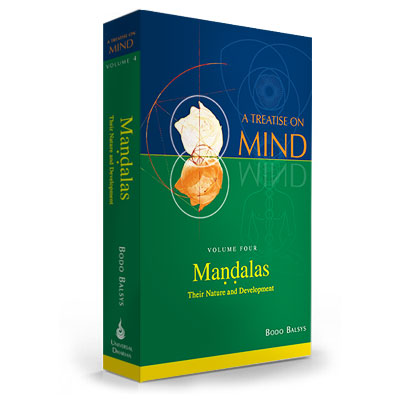
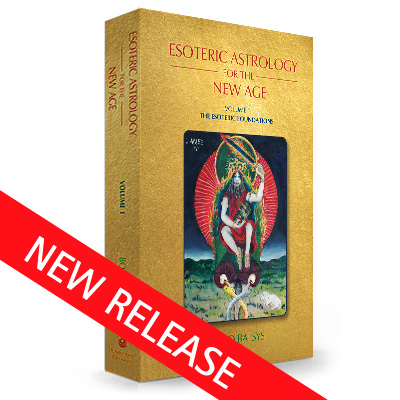
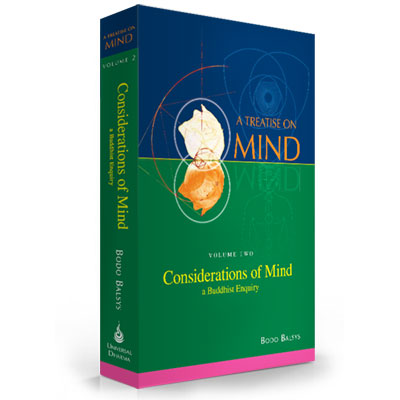
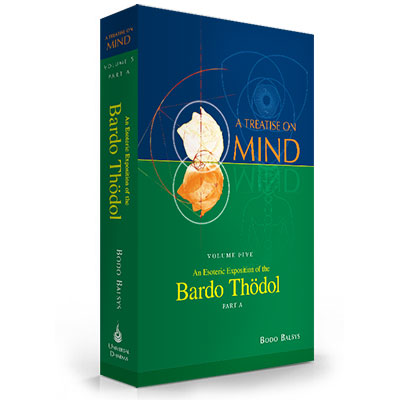
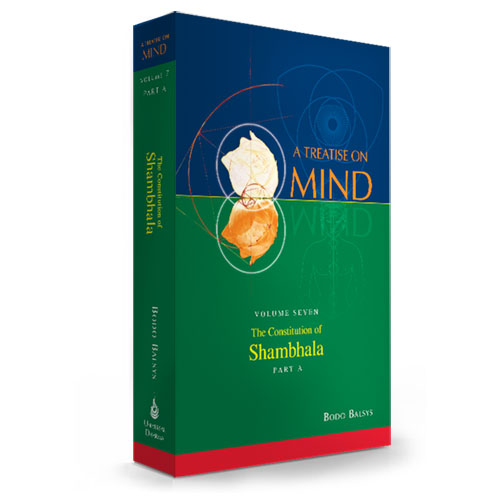
sangha –
J.Turiano – May 5, 2014:
This book represents a marriage of Buddhist thought and philosophy with the Esoteric metaphysical tradition. It will probably most appeal to students of the Alice Bailey teachings, some Theosophists, and serious and dedicated Buddhists. As the above overview of the subject matter indicates, it does not represent “light reading”, but requires serious focus and something of a background in the study of Buddhist terms and concepts to understand. The author clearly believes in a challenging path of life learning and mastery of the mind, and reading this book is in itself a kind of discipline that fits in with that philosophy. Accordingly, readers who prefer breezily written New Age material may find it too difficult for their taste.
The book is a challenge, and like many challenges, their are some rewards that can be mined through meeting it. Some of the interesting and largely original descriptions and examinations to be found within include a study of the patterns of energy created by the mind and their conscious, subconscious, astral, and afterlife implications, a study of the nature of human will, and a detailed exploration of the effects of thought upon the actual physical cells of the body. The exposition of the Eightfold Path, examined in the light of the cycles and signs of Esoteric astrology, is also of particular interest in relation to the study of the classic idea of the spiritual Evolution of the Soul.